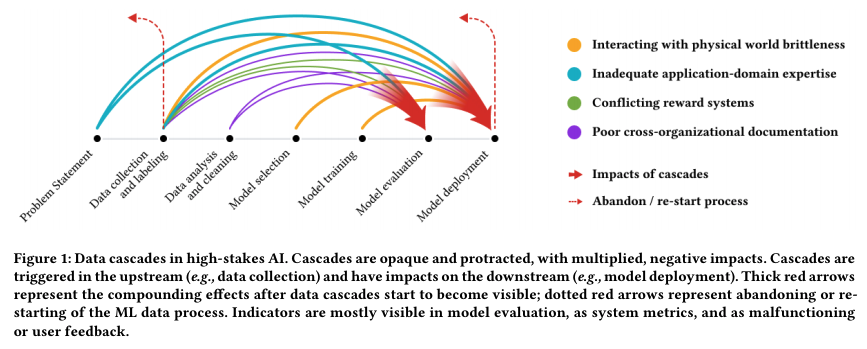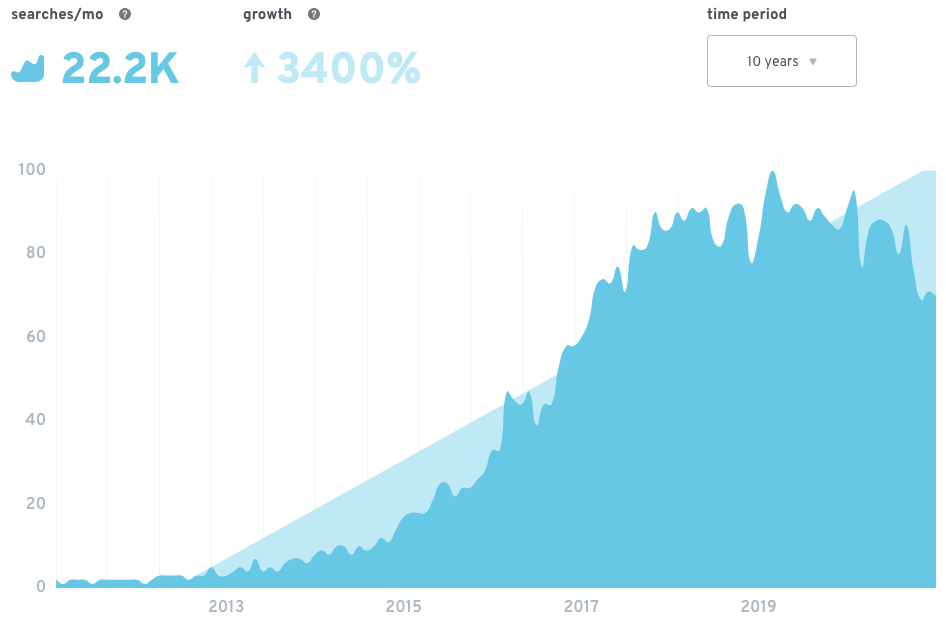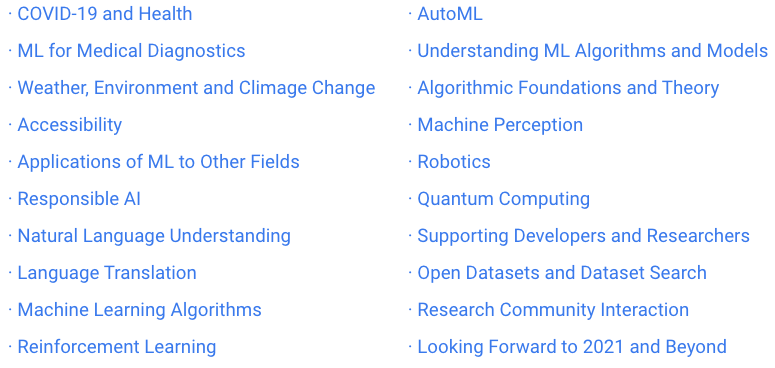A study guide for ML engineering, a new Google paper on "Data Cascades", and more...
There’s no podcast episode this week due to an unfortunate coincidence of multiple guests needing to reschedule. My apologies, I’ll be doing my best in the future to not let this happen again.
That doesn’t mean I don’t have any new content for this week, though! Today I’m releasing an article that answers one of the most common questions I get:
“I want to learn machine learning, where do I start / what do I do?”
When I was first getting started in ML, it was pretty straightforward: there was ONE introductory online course, ONE deep learning textbook, and TWO sets of lecture videos from Stanford on CV and NLP.
Since then, there’s been an explosion of learning materials and it’s hard to know what is actually worth your time. I’ve seen a few people get overwhelmed with everything they can choose from and never end up actually committing to one. To solve this, I’ve put together a Study Guide for Machine Learning Engineering that lays out a clear starting path and contains a list of resources that I and my friends have learned from. I’ll be constantly updating it to make it the definitive guide for those getting started.
If you’re a CS student or current software engineer who is looking to transition to an ML role, you should definitely check it out: Machine Learning Engineering Study Guide
I would love to hear any feedback that you have after reading. And if you choose to follow it, send me an email and I’ll help you through it.
“Everyone wants to do the model work, not the data work”
 |
We’ve all heard the term “garbage in, garbage out” when it comes to data’s effect on ML model performance. A new Google paper, “Data Cascades in High-Stakes AI”, takes a look at the impact of poor data quality across a wide variety of different ML use-cases.
They find that with current ML practices, data cascades occur in a staggering 92% of cases! They further distinguish between four different types of issues and propose HCI-based solutions to alleviate them.
Read it here: Data Cascades in High-Stakes AI
Sebastian Ruder's 2020 ML Research Highlights
Sebastian Ruder is one of my favorite ML bloggers, and only tends to release extremely high quality articles a few times a year. Luckily for us, he has a new post highlighting 10 of the biggest research trends from the past year. With TONS of links to sources, and explanations of why each trend is important, this will be more than enough to catch you up to the state of the art in ML research.
Read it here: ML and NLP Research Highlights of 2020
One ML PhD’s personal reflection on the risks of AI
Everyone working in ML needs to be aware of the impact of their work from an ethics perspective. This article from Jaan Altosaar features an incredible personal story and a call-to-arms of sorts on how we can and should work to reduce the risks inherent to building AI systems.
Read it here: My friend radicalized. This made me rethink how I build AI
Pair with this podcast episode on AI Fairness and Ethics with Catherine Yeo.
Machine Learning Engineered
I mentioned last week that I had to skip an episode release because of guest reschedulings. Since then, I’ve recorded five episodes, which was fun but extremely tiring. Rest assured, I won’t be missing another release! Also, in case you missed it, I wrote up a study guide for aspiring ML engineers that lays out a clear starting path and contains a list of resources that I and my friends have learned from. Read the Study Guide In this week's edition: My Interview on the MLOps Community podcast...
After a month off from releasing original interviews on the podcast feed, I’m so excited to be sharing this episode with all of you! Aether Biomachines is one of the most interesting machine learning startups I’ve ever come across and I was thrilled to interview the founder, Pavle Jeremic. Building a Post-Scarcity Future using Machine Learning “How can we make sure that the economy is so productive that the desperation that leads people to commit atrocities never happens?” In this episode,...
First, an apology: due to some technical issues, the release of the second “Best of ML Engineered in 2020” episode is delayed until this weekend. Sorry about that! Until then, you can check out last week’s compilation episode of the best ML engineering highlights: Click here to listen to the episode, or find it in your podcast player of choice: https://www.mlengineered.com/listen Onto this week’s newsletter! Evaluating online machine learning models “Batch models are meant to be used when you...


